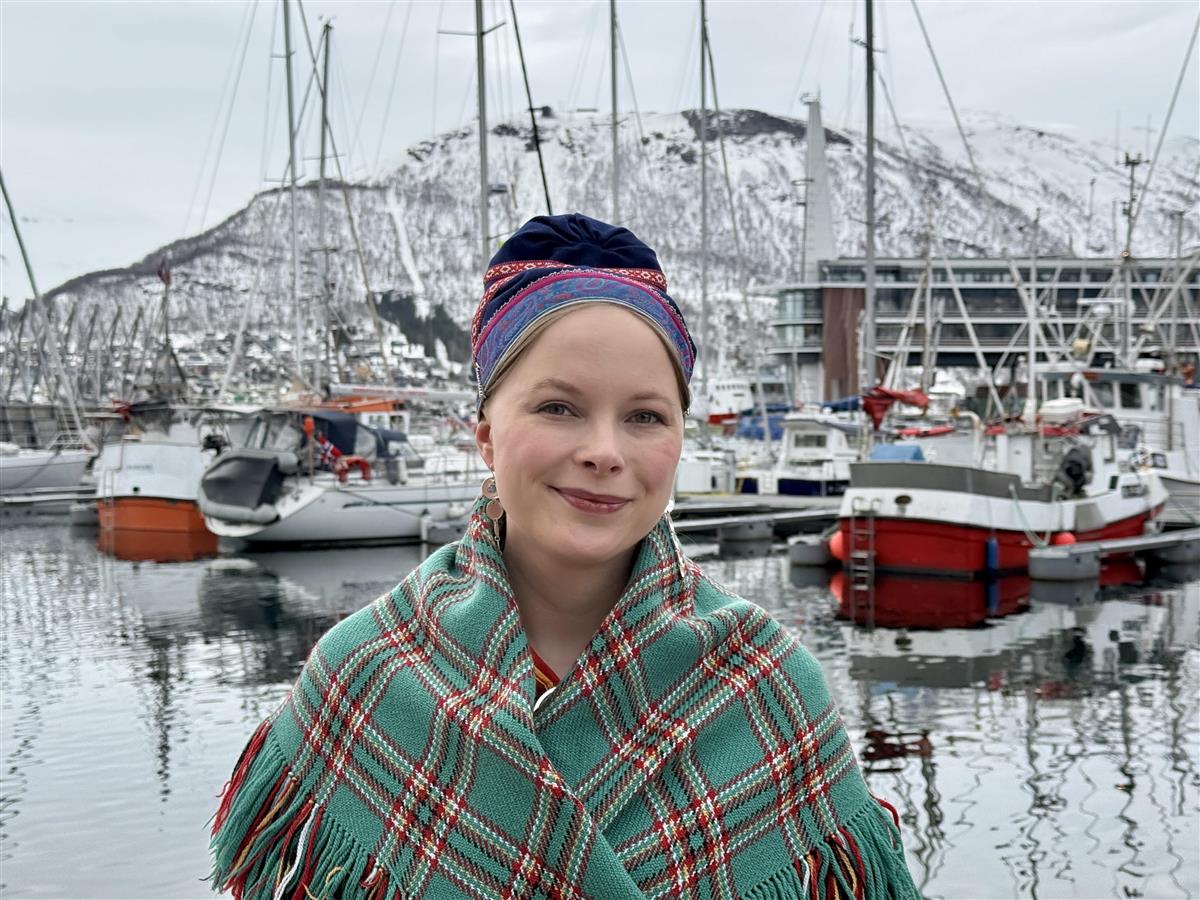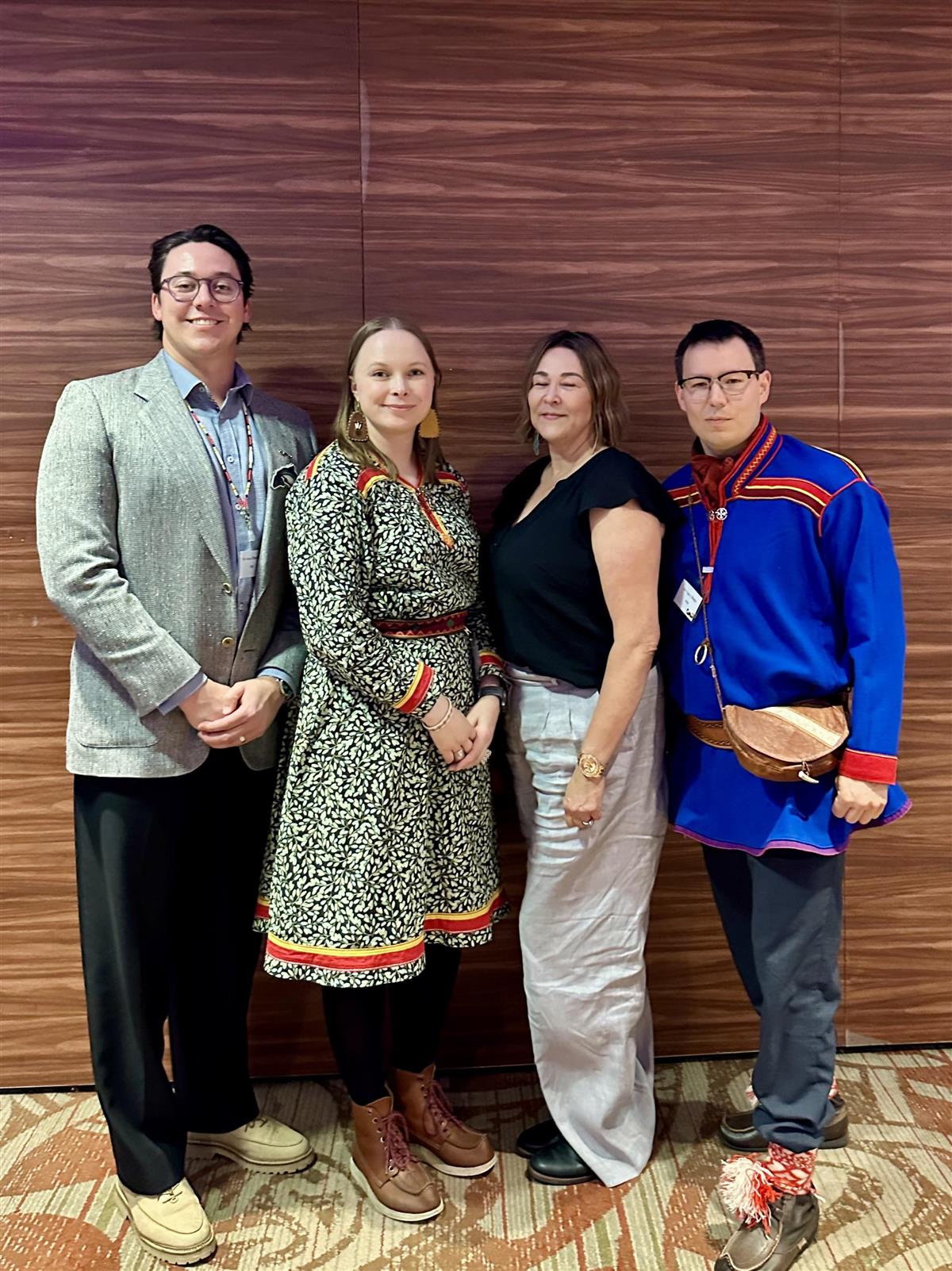
– Dát lea historjjálaš vuoitu álgoálbmogiidda. Lea vuosttas geardde go Sámediggi lea oassálastán ođđa álgoálbmotstáhtusiin. Dát lea mearrideaddji dasa vai álgoálbmogiid máhttu ja álgoálbmogiid jođiheapmi galgá leat vuođđun stáhtaid mearrádusaide, dadjá politihkalaš ráđđeaddi Sandra Márjá West, gii oassálasttii NASCOs Sámedikki ovddas.
Norgga Sámediggi lea okta njealji álgoálbmotorganisašuvnnain mii dál lea akkrediterejuvvon dáinna stáhtusiin, ovttas Atlantic Policy Congress of First Nations Chiefs Secretariat, Houlton Band of Maliseet Indians ja Unama’ki Institute of Natural Resources. Álgoálbmotorganisašuvnnain lea dál dievaslaš sárdnunvuoigatvuohta buot áššiid oktavuođas mat meannuduvvojit NASCOs ja dan kommišuvnnain. Álgoálbmotorganisašuvnnat sáhttet maid nomineret miellahtuid NASCO bargojoavkkuide.
Dát ođđa stáhtus lea boađus Kanada ja Sámi álgoálbmogiidáirasiid rahčamušain máŋga jagi badjel. Sámediggi lea oassálastán NGOan 2012is, muhto dat attii eanet gáržžiduvvon oassálastinvejolašvuođaid. – Mun lean ilus dan buori ovttasbarggu ovddas mis lea min álgoálbmotbargoustibiiguin Kanadas ja USAs. Álgoálbmogin juogadat mii čeavlli min luossakultuvrraid hárrái, muhto mii juogadat maid vuorjašumiid luosa boahttevuođa dáfus.
Walesas ovdanbuvttii álgoálbmotdelegašuvdna iežaset oktasaš sáttasáni ja čujuhii Kárášjoga-julggaštussii, mearriduvvon luossaálgoálbmogiid nuppi riikkaidgaskasaš čoahkkimis Sámis 2023as. Julggaštus nanne dan ahte álgoálbmogiin lea lunddolaš ja vealtameahttun vuoigatvuohta oassálastit stivret ja suddjet luosa ja dan eallinguovlluid.
Dieđalaš ovdanbuktimat ledje maid prográmmas Walesas. Máŋga NASCO miellahtustáhtain čujuhedje guollebiebmama luosa stuorámus áittan. Varraseamos raporta luossahálddašeami dieđalaš ráđis čájeha garra máddodatgeahppáneami ja geassá ovdan luosa vuostá olbmuid dahkkojuvvon áitagiid čilgehussan:
Dálkkádatrievdamat, eallinguovlluid billiduvvomat, ja váikkuhusat guollebiepmahagain gos ain geavahit rabas rusttegiid ja váilevaš bearráigeahččamat luossadihkiid ja gárgidemiid ektui.
– Okta stuorámus áitagiin dál min luosa vuostá lea guollebiebmanindustriija. Dál gáibidat mii ahte NASCO mearrida oainnus guollebiepmahagaid hárrái, ja mii áigut bargat dan ala ahte ásahuvvo riikkaidgaskasaš gielddus geavahit rabas rusttegiid, dadjá West.
Kárášjoga-julggáštus: IISPN - Karasjok Declaration
Álgosáhkavuorru álgoálbmotorganisašuvnnain NASCOii
(Dušše eŋgelasgillii, olles sáhkavuorru vulobealde)

«Madame President, Distinguished Delegates, Observers, Ladies and Gentlemen
This is an opening statement on behalf of the four Indigenous Peoples’ Representatives and Institutions with observer status in NASCO. We speak here for the Atlantic Policy Congress of First Nations Chiefs Secretariat, Houlton Band of Maliseet Indians, The Sámi Parliament in Norway and the Unama’ki Institute of Natural Resources.
We would like to extend our gratitude to NASCO Council for making space for Indigenous Peoples at NASCO and allowing us to take space as observers for the first time. The decisions that are made here affect us and we believe that we have valuable knowledge to offer to safeguard the salmon and its waters. We hope to further develop our role in NASCO, to better serve the salmon.
The salmon is affected both by climate change and by the nature crisis. Indigenous Peoples’ knowledge is recognized by leading researchers as a way to address the global biodiversity crisis. Our ways of being are to use sparsely, to be in dialogue with nature, and to leave our surroundings for our children, in as good as, or better state, than was left to us by our ancestors.
Last October Indigenous Peoples from across the northern hemisphere gathered in Kárášjohka for the second International Indigenous Salmon Peoples Gathering, hosted by the Sámi nation. There we wrote a statement that outlines some important common principles for salmon stewardship.
We declare that as Indigenous Salmon Peoples we continue to steward and live interconnectedly with the Salmon and Waters and it is our responsibility to uphold our relationship with the Salmon and their habitat.
We declare that the impacts from climate crisis and climate change-related stressors and industrial and commercial activities must be addressed with meaningful and holistic salmon rebuilding plans backed by significant resourcing and led by Indigenous Salmon Peoples.
We declare our rightful role as the caretakers of Salmon.
We declare that Indigenous Peoples’ authority, governance, jurisdiction and knowledge systems be recognized, respected and upheld. We emphasize that Indigenous Peoples and Indigenous Peoples’ Knowledge must be the foundation for all stewardship of Salmon.
When Salmon are healthy, Indigenous Salmon Peoples are healthy. Salmon are the lifeblood of our communities, Tribes, and Nations. Salmon are integral to our food security and food sovereignty and feature prominently in our spiritual and ceremonial practices. When Salmon do not return, Salmon Peoples practices, foodways and the Indigenous Peoples Knowledge surrounding them leads to losses in all realms of our lives, including our and the world's health and wellbeing.
As we stand here in solidarity, we would like to bring to NASCO’s attention that many of our Indigenous nations have voluntarily reduced harvests and no longer harvest in many of our traditional areas. We are proud of the good condition that our rivers are in, and we are doing our best to protect the habitats so that the salmon will return.
But we know we cannot do it alone. None of us can.
We would like to invite you to read the Declaration of the International Indigenous Salmon Peoples Gathering IISPN - Karasjok Declaration. Any person or organisation can sign it in solidarity with us.
We are looking forward to meaningful conversations and to contribute with our knowledge to the benefit of salmon. Giitu, Wela’liek, Woliwon, thank you, to the NASCO Council for giving us the floor.
Indigenous Peoples’ Representatives and Institutions. »